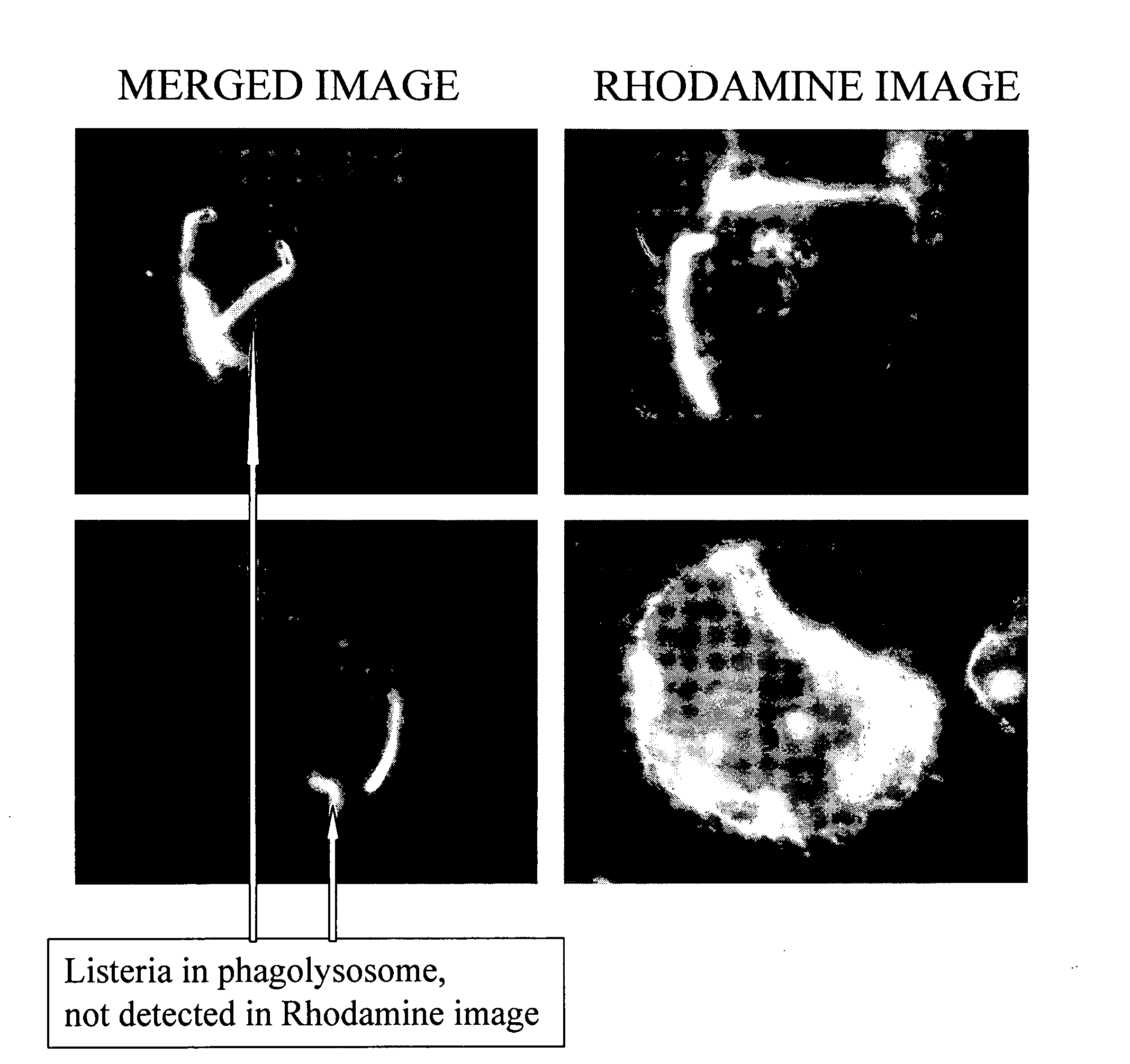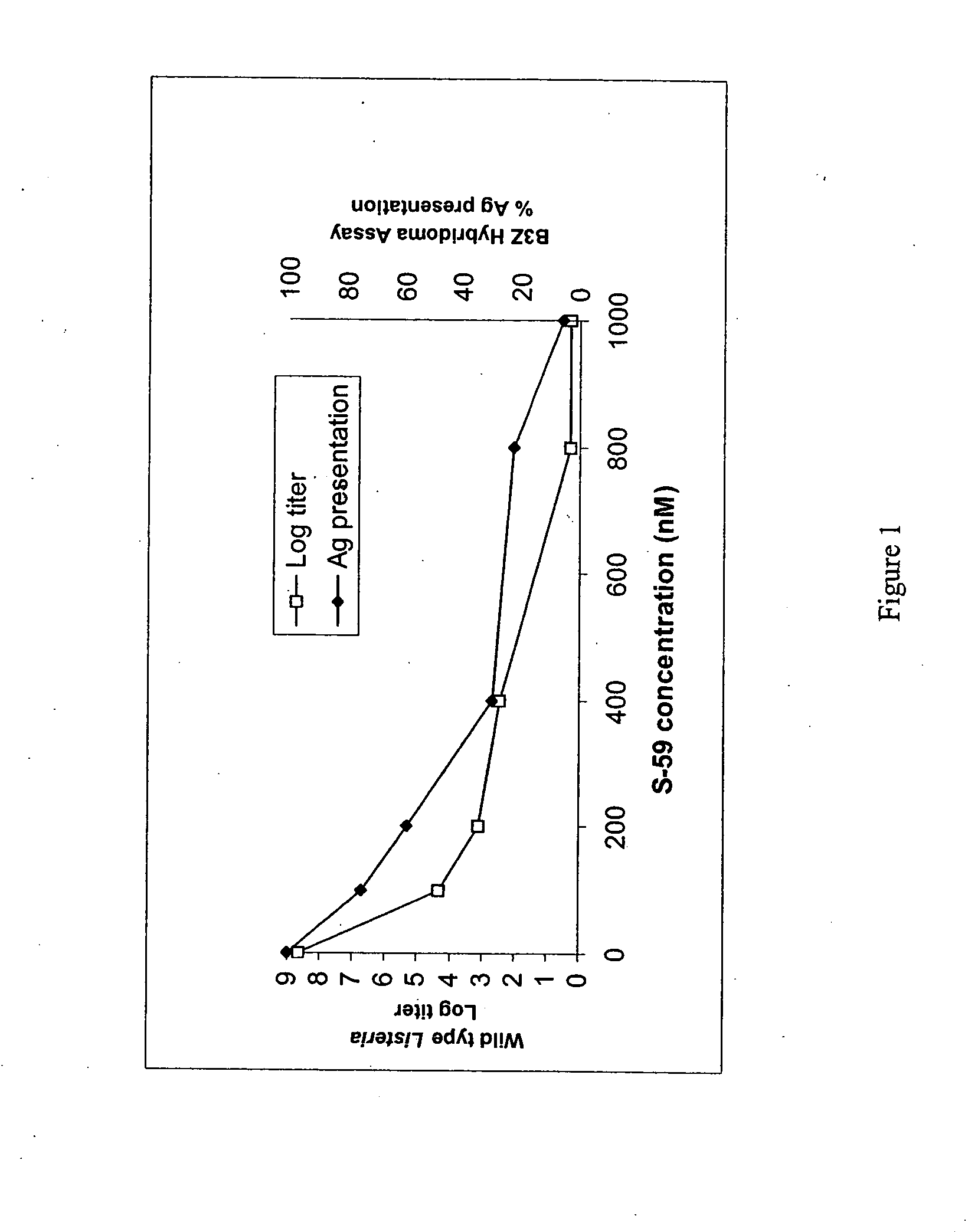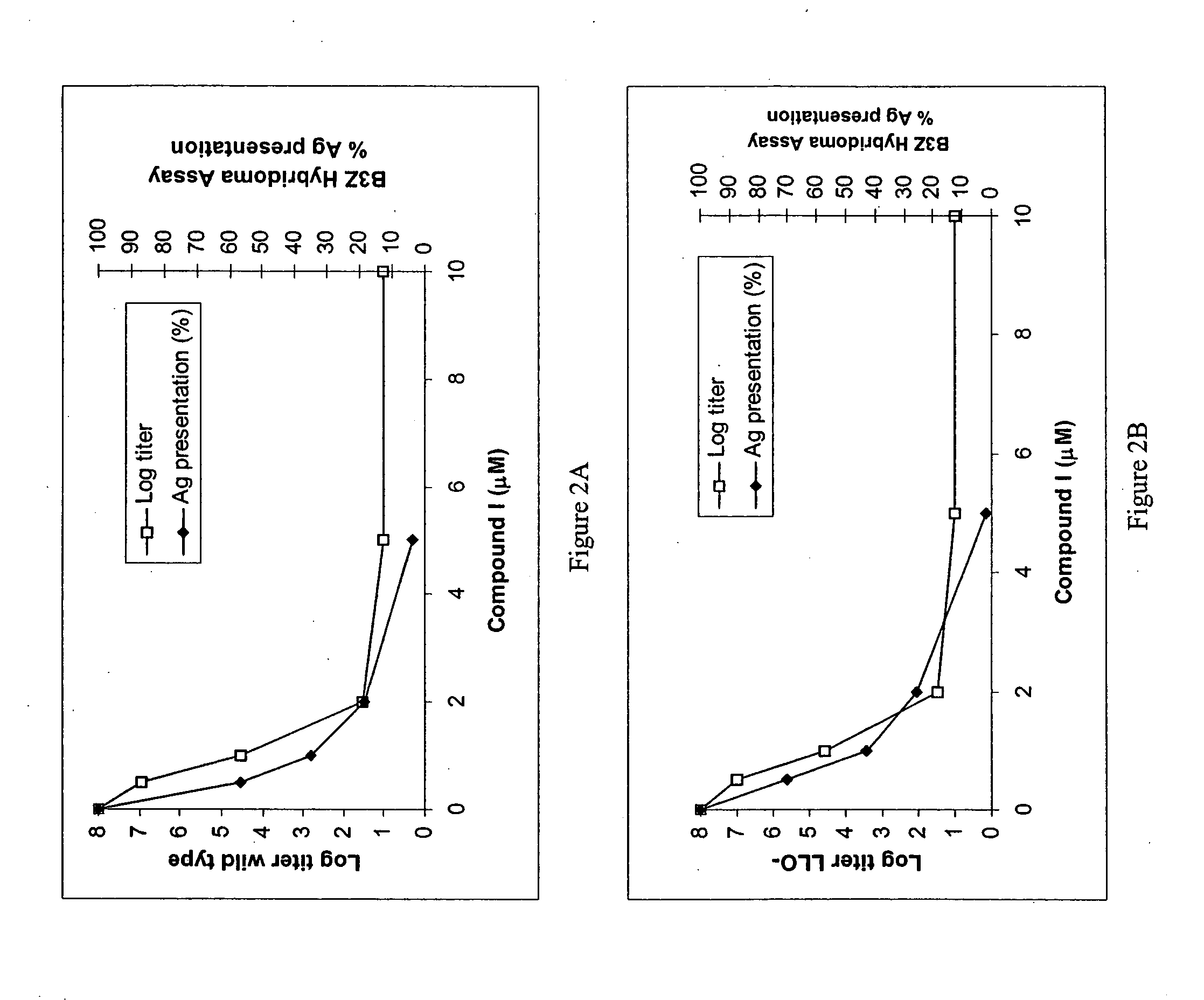Modified free-living microbes, vaccine compositions and methods of use thereof
a free-living microbe and vaccine technology, applied in the field of vaccine compositions and immunotherapy, can solve the problems of not being able to combine antigen loading with dc activation and maturation, and still not being efficient and cost effective methods, so as to achieve the effect of attenuating the proliferation of the microb
- Summary
- Abstract
- Description
- Claims
- Application Information
AI Technical Summary
Benefits of technology
Problems solved by technology
Method used
Image
Examples
example 1
Psoralen Treatment of Listeria Strains Providing Attenuation of Proliferation while Maintaining Expression of OVA Antigen
[0263]Several strains of Listeria monocytogenes that have been modified to express ovalbumin, a heterologous chicken OVA antigen, were reacted with 4′-(4-amino-2-oxa)butyl-4,5′,8-trimethylpsoralen (S-59 prepared from solid (Ash-Stevens, Riverview, Mich.) as 3 mM solution by Ben Venue, Cleveland, Ohio (see U.S. Pat. No. 5,399,719)) and UVA light (320-400 nm). The resulting Listeria were assayed to assess the reduction in the log titer of viable Listeria as well as for the expression of the OVA antigen by the Listeria. The Listeria strains were provided by Dr. Dan Portnoy at the University of California, Berkeley and modified to contain the OVA antigen as discussed in Example 8. These were DP-L4056 (wild-type), DP-L4029 (10403S ΔactA, phage cured deletion mutation in the Act A gene, see Skoble et al., Journal of Cell Biology, 150:527-537 (2000) and Lauer et al., Jou...
example 2
DNA Targeted Alkylator Treatment of Listeria Strains Providing Attenuation of Proliferation While Maintaining Expression of OVA Antigen
[0266]A procedure was done similarly to Example 1 only using the compound β-alanine, N-(acridin-9-yl), 2-[bis(2-chloroethyl)amino]ethyl ester (Compound 1, ChemSyn, Harrisonville, Mo., see U.S. Pat. No. 6,093,725). The Listeria strains used were DP-L4056 and DP-L4017. Compound 1 (1 mM in acidic BBS (blood bank saline), 135 μl of 1.48 M H3PO4 per 100 mL BBS) was added to 5 mL of bacteria at 1×108 CFU / mL to concentrations of 0, 0.5, 1, 2, 5, and 10 μM and the samples incubated for 2 hours at room temperature. After the incubation, the bacterial titer and antigen presentation was assessed as per Example 1. For the antigen presentation, the Listeria strains were diluted to 1×102, 1×103, 1×104, 1×105, 1×106 or 1×107 CFU / mL. The log titer, log attenuation and antigen presentation as a percent of untreated (1 Listeria per DC 2.4) as a function of compound 1 ...
example 3
Comparison of Attenuation of Proliferation by Psoralen Treatment of uvrAB Mutant Vs. Wild-Type Escherichia coli
[0267]The psoralen treatment of a mutant Escherichia coli (E. coli) strain that is deficient in the ability to repair nucleic acid damage was compared to a wild-type strain. E. coli strains AB1157 (wild-type) and CSR 603 (uvrA, recA, phr mutant obtained from Dr. Aziz Sancar, University of North Carolina, see Harm, Mutation Research 60:263-270 (1979)). This example compares the attenuation of AB 1157 vs mutant CSR603 grown in 3 mL of LB media with streptomycin overnight at 37° C. on an orbital shaker at 250 rpm. A 2 mL aliquot of this was added to 100 mL of LB media at 30° C. and placed on the shaker for approximately 5 hours, until the absorbance at 600 nm was 0.9 OD, approximately 1×109 CFU / mL. For each strain, approximately 0.5 mL of the bacterial stock was added to a 15 mL tube and centrifuged at 4° C. for 20 minutes at 2300×g. The supernatant was removed and each pelle...
PUM
 Login to View More
Login to View More Abstract
Description
Claims
Application Information
 Login to View More
Login to View More - R&D
- Intellectual Property
- Life Sciences
- Materials
- Tech Scout
- Unparalleled Data Quality
- Higher Quality Content
- 60% Fewer Hallucinations
Browse by: Latest US Patents, China's latest patents, Technical Efficacy Thesaurus, Application Domain, Technology Topic, Popular Technical Reports.
© 2025 PatSnap. All rights reserved.Legal|Privacy policy|Modern Slavery Act Transparency Statement|Sitemap|About US| Contact US: help@patsnap.com



